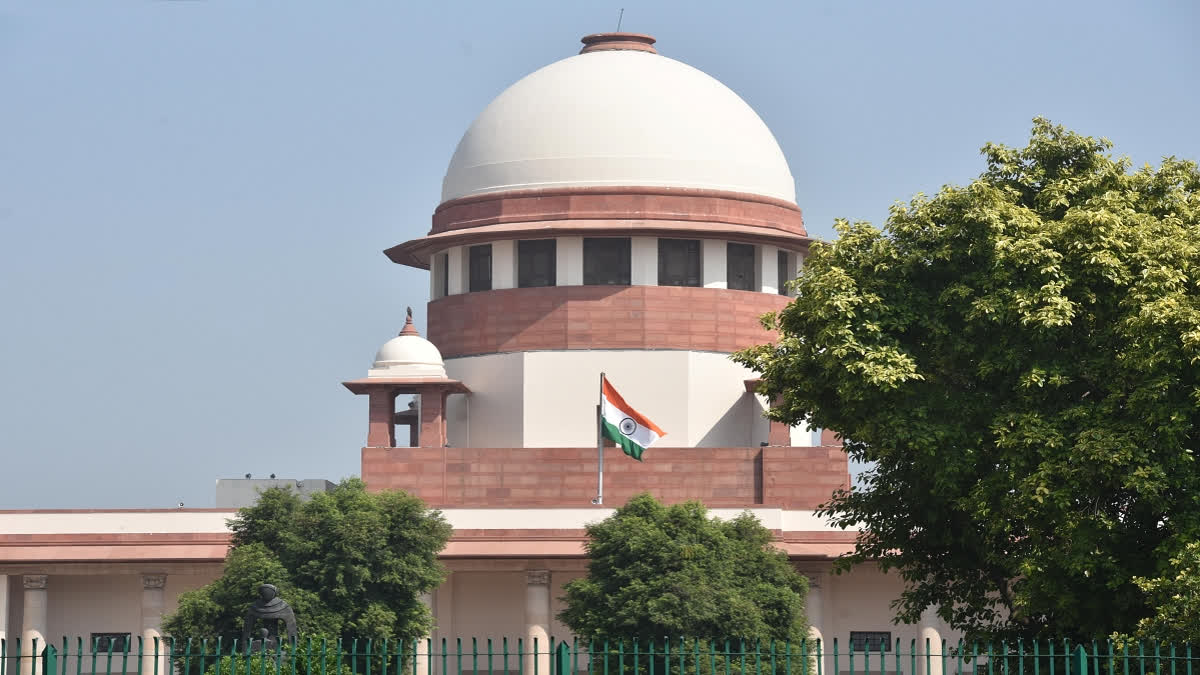New Delhi:Supreme Court judge Justice Pankaj Mithal on Thursday delved into the revered Hindu scripture Bhagavad Gita – which encapsulates teachings on philosophy, ethics, and spirituality – to say that there was no caste system in primitive India, instead varna system (categorisation) existed.
He said according to the varna system no one is to be considered as lower or higher, rather it is preached that everyone is an equal fragment and a part and parcel of him, the almighty.
Dwelling into the philosophical underpinning and wisdom of Gita, Justice Mithal concluded that the policy of reservation as enshrined under the Constitution and by its various amendments requires a fresh re-look and evolvement of other methods for helping and uplifting the depressed class or the downtrodden or the persons belonging to SC/ST/OBC communities.
While favouring sub-categorisation of SC, Justice Mithal said so long no new method is evolved or adopted, the system of reservation as prevailing may continue to occupy the field with power to permit subclassification of a class particularly scheduled caste as I would not be suggesting dismantling of an existing building without erecting a new one in its place which may prove to be more useful.
Justice Mithal said he is not an expert on religious scriptures but he has gone through Bhagavad Gita and Ramcharit Manas sometimes. "According to my limited understanding of the scriptures specially the Gita, I am of the firm view that in primitive India there was no existence of any caste system rather there was categorisation of the people according to their profession, talent, qualities and nature," he added.
Citing verse 13 of chapter 4 and verse 41 of chapter 18 of the Gita, he said that Lord Krishna says that I have categorised humans in four varnas according to their nature and characteristics. “Gita thus only promotes the varna system which is different from the present-day caste system. It lays emphasis on abilities, qualities and consciousness of a person to have a balanced structure of society and to bring out the best in every person. The four varnas (occupational categories) are: - Bharama, Kshatriyas, Vaishayas, and Shudras”, he said.
He said slowly the varna system prevalent was misconstrued to be a caste system which practice was found to be socially non-acceptable and as such after independence with the adoption of the Constitution. "We again tried to move into a casteless society but in the name of social welfare to uplift the depressed and the backward classes, we again fell into the trap of caste system. “We gave the privilege of reservation to the depressed or the backward class or the Scheduled Caste to bring about equality”, he said.
Intrinsic quality of each varna as per Bhagavad Gita
Justice Mithal said the Bhagavad Gita in verses describes the intrinsic qualities of each of the varnas and the varna system depicting occupational categories can also be explained with the physical body of a person wherein the head of a person which does intellectual work is called ‘Bharaman’.
"The hands which protect him and his family do the job of a ‘Kshatriya’. The abdomen which requires food to convert it into energy refers to ‘Vaishayas’, who are predominantly the farmers and merchants invested to earn a livelihood. The lower limbs (legs) do all kinds of labour work and are referred to as ‘Shudras’”, he said.
The Skanda Purana also contains a shloka, which means that everyone is born as Shudra i.e. to work and slowly each one of them elevates himself to a higher status of Vaishya, Kshatriya and Brahmin on the strength of his talent, quality, character and nature.
He stressed that it means the duties of Brahmins, Kshatriyas, Vaishyas, and Shudras were distributed according to their qualities (guns) and nature (and not by birth).
"All people have different natures and characteristics. Their personality is shaped according to their qualities (gunas). Thus, different professionals’ duties are suited to persons of different nature and character," he said, adding that since the centre of society is God (Parmatma), everyone (atma) works according to their intrinsic qualities to sustain themselves and the society.
He said according to the varna system no one is to be considered as lower or higher, rather it is preached that everyone is an equal fragment and a part and parcel of him, the almighty.
